Michelle Obama’s Becoming memoir outclasses the Netflix documentary
Does the former first lady fulfil her promise to pull no punches in her Netflix film? Those seeking insightful reflections into her astonishing ascent would be better off revisiting her memoir.
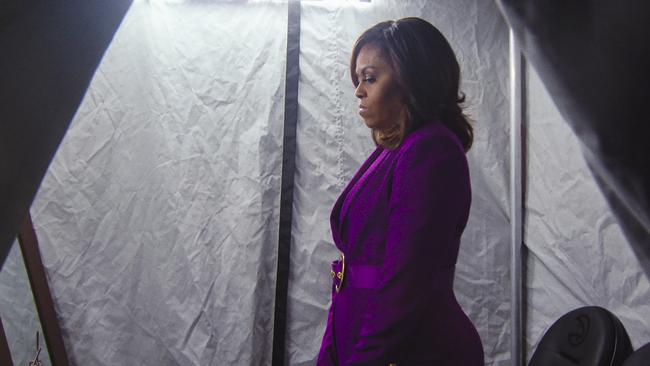
S he is the only African-American to have been first lady of the US, but that doesn’t mean Michelle Obama has always liked politics. “Having grown up black and on the South Side (of Chicago), I had little faith in politics,” she writes in her best-selling memoir, Becoming.
These days, however, Obama basks in a different type of power — the power of fame — as Netflix’s just-released documentary, which shares the same title as her book, attests. Obama is seen as one of America’s most relatable and popular first ladies, and this slick 90-minute film, directed by documentary specialist Nadia Hallgren, tracks the 34-city promotional tour that followed the release of her acclaimed book, which has sold 10 million copies and was the fastest-selling title of 2018.
The ex-first lady is accorded full rock-star treatment on her book-spruiking tour, appearing in packed arenas with adoring crowds, multiple screens and a rotating roster of celebrity interviewers, including Oprah Winfrey and Stephen Colbert. The film is more Oprah-style confessional than Oval Office intrigue — it features more hugging and motivational statements about the “power of gathering’’ and embracing your own story than anywhere this side of a Byron Bay yoga retreat.
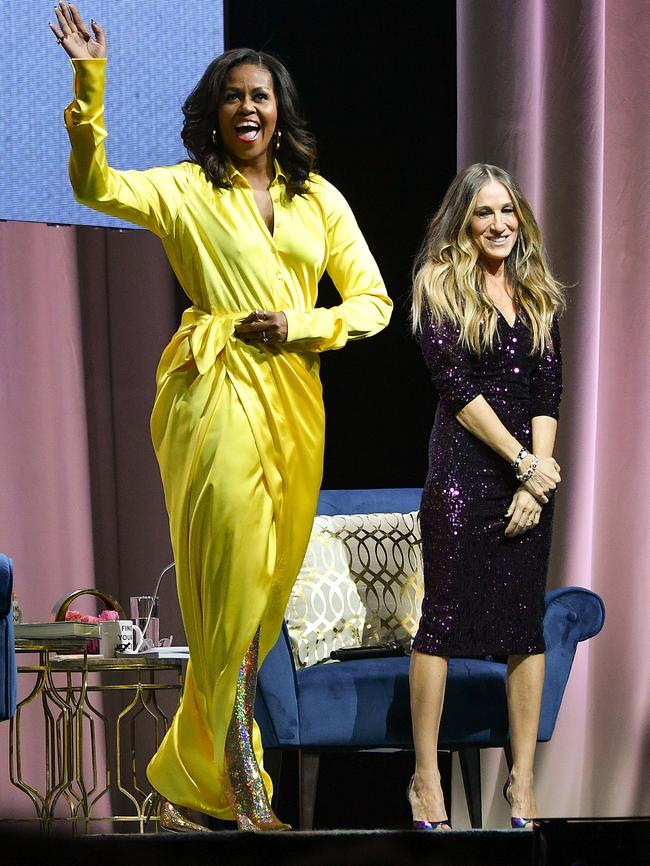
The film shows, as you’ve never seen her before, the woman who was descended from slaves but went on to become the 44th first lady of the US. She delivers one-liners and self-deprecating jokes with the panache of a talk-show host, while her semi-conservative first lady outfits and moderate heels have been ditched for flamboyant fashion statements including thigh-high iridescent boots and a glittering blue pants suit. As her stylist comments: “She’s not a minimalist.’’
Three and a half years after leaving the White House, it turns out that Michelle Obama is a bold fashionista and gifted comic. Noting how she and her live audiences have gathered to discuss her memoir, she exclaims: “Nobody’s twerkin’. We are reading!’’
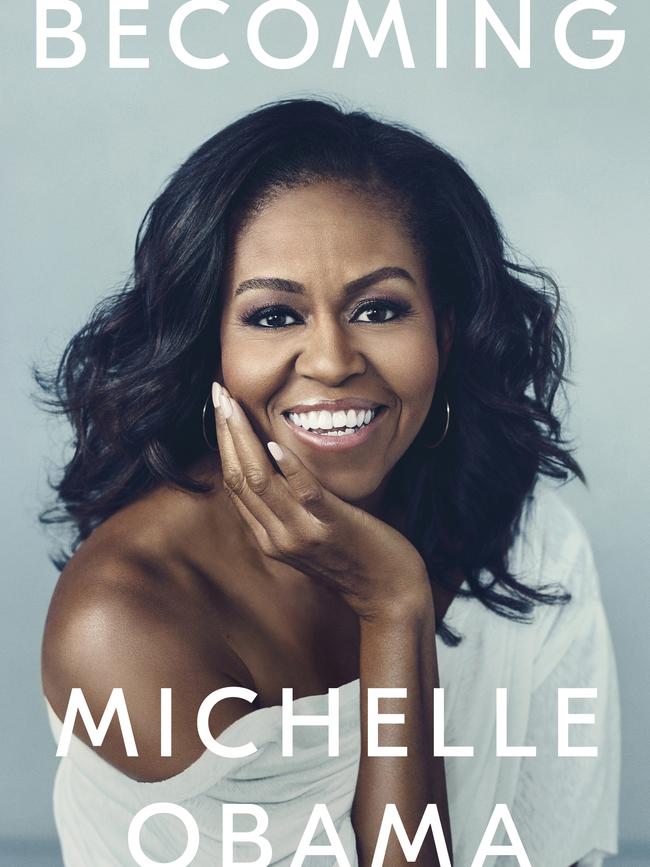
Many of her stories closely follow those in her book, such as the time her Chicago law firm asked her to supervise a new African-American intern with the unusual name, Barack Obama. “I was like, ‘trifling black man, late on the first day!’,’’ she riffs. (The former president has a small, walk-on role in the film, but it’s his wife who gets star billing.)
However, while Michelle Obama comes across as surprisingly irreverent and charismatic, the documentary is ultimately a let-down, largely because it dodges some of the key, complex issues she handles so skilfully in her book. Among them are the strains her husband’s political career put on their marriage and the gang violence that disfigures some black urban communities in America — especially in Chicago, where she was born and raised.
“It’s hard blending two lives together,’’ she says in the documentary, alluding to tensions in her marriage years ago. “I took Barack to marital counselling so they’d fix him. Then he started lookin’ over at me and I’m thinking: ‘Why you talkin’ to me? I am perfect!’ ” Here, a self-mocking Obama is playing to the crowd. The tone of this anecdote is vastly different to that in her book, where she reveals that the couple’s “frustrations began to rear up often and intensely’’ before they sought professional help.
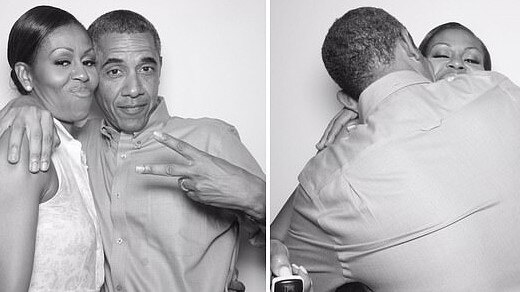
Obama promises the documentary will present a version of her that is “totally me, unplugged, for the first time’’. This is a stretch, as it’s made for Netflix by the Obamas’ film company, Higher Ground Productions, which has signed a multi-year agreement with the streaming behemoth.
Comprising excerpts from her book tour, interviews with family members and intimate meetings with young people from minority backgrounds, the documentary at times verges on hagiography: in one scene, several women who meet her at a book signing become weepy and one hyperventilates so much she can barely speak. In another her brother, Craig Robinson, describes her, seemingly without irony, as “the most popular person in the world’’.
Those seeking genuinely insightful reflections into Obama’s astonishing ascent from modest beginnings in a racially segregated city to the White House would be better off revisiting her memoir, widely praised for its frankness and authenticity.
One of the memoir’s most powerful passages centres on a 15-year-old selective high school student named Hadiya Pendleton, who was raised just 4km away from the ex-first lady’s childhood home in Chicago. Hadiya was in a school marching band that performed at Barack Obama’s second-term inauguration in 2013.
Eight days later, she was shot and killed in a Chicago park — she and her friends had been mistaken for gang members by a teenage shooter. Obama attended Hadiya’s funeral and reflects how “it was important to me to be more than a consoler’’. She visited a Chicago high school in a neighbourhood that had been “rough’’ but not “deadly” while she was growing up nearby. Things had changed, and in 2012, 29 of the school’s current and recent students were shot — eight of them died.
The first lady met students who described a “daily, even hourly fear of gangs and violence’’ — some would avoid footpaths and walk down the centre of busy roads to protect themselves from shifting gang allegiances and fights. Here, Obama offered sensitive and affecting reportage made more powerful by the fact that she was raised in a similar suburb — one beset by an exodus of white residents, but which was not overrun by gangs.
By contrast, when she meets groups of teenagers from minority backgrounds for the film, she offers vague, feel-good exhortations. She tells one Latina student who works after school to support her family that her story “is your power’’. She tells others “we focus too much on stats but not on story’’.
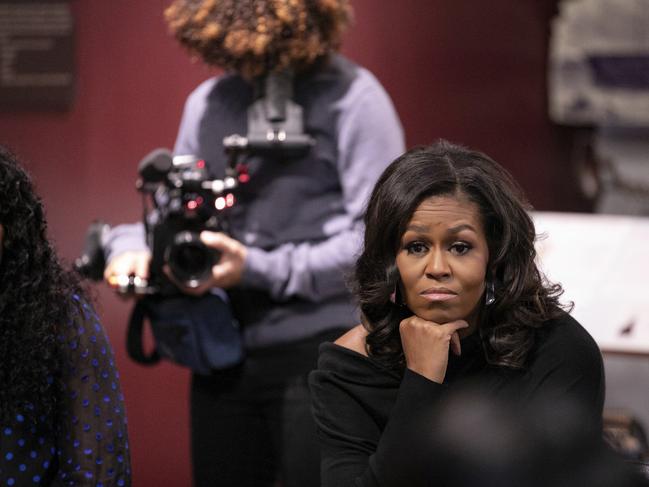
SBS is currently streaming CBS drama The Red Line, which explores a police killing of an innocent black doctor in Chicago and that city’s notorious racial segregation. Initially, it’s a fascinating (if worthy) look at those supercharged issues, as it tells the story of the police shooting from the perspective of the victim’s family and the perspective of the officer who pulled the trigger. Ultimately, both the Obama documentary and The Red Line succumb to a kind of woke denial of the more obvious complexities — notably gang violence — that entrench black disadvantage in America, along with police brutality and discrimination.
As we’ve seen in Georgia this week, police and civilian shootings of unarmed African-Americans are a pressing and unresolved problem in the US, and Obama’s documentary is stronger on this theme. She reads out the names of victims of such shootings and says she and Barack were aware that, in a racially divided nation, a black family in the White House was “a provocation’’.
The film briefly alludes to death threats made against her and her husband. “You hope people were more ready for us than maybe … they were,’’ she says, in what is the film’s saddest quote, but again, she doesn’t elaborate.
Despite the threats, as first lady Obama assiduously cultivated the image of the down-to-earth mother-in-chief, doing push-ups on a talk show, campaigning on girls’ education, planting a veggie garden at the White House. Mostly, she inhabits a sassier version of that same persona for the filmed book tour. She reveals that while living in the White House with cooks and housekeepers, she insisted her daughters clean their rooms because “I am not raising kids that do not know how to make a bed”. Her fans lap this up, along with her rubbishing of the notion that women can seamlessly run a family and “lean in’’ to their careers. “Marriage still ain’t equal, y’all,” she drawls. “It’s not always enough to lean in, because that shit doesn’t work all the time.”
She also focuses on her early missteps, and the racism and unfair scrutiny she has encountered.
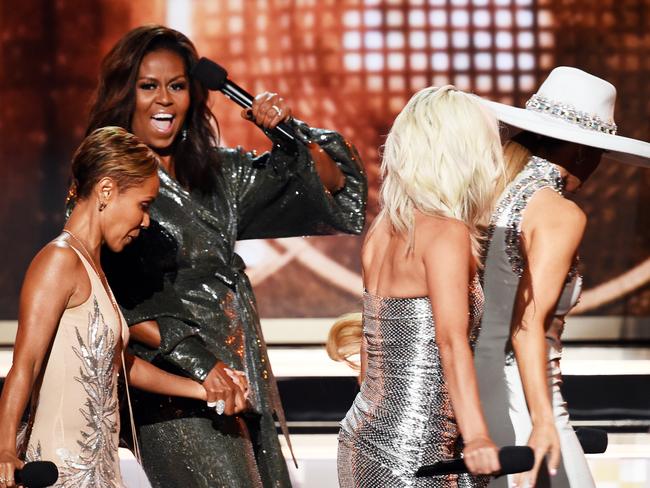
Just before her husband became a presidential candidate, she said, “for the first time in my adult life I am really proud of my country’’. She was characterised as angry and ungrateful for the opportunities that had taken her to Princeton and Harvard and a well-paid legal job. In 2008, a Fox News host asked whether a playful fist bump between her and Barack was “a terrorist fist jab’’, while a notorious New Yorker cover depicted the couple as jihadis.
With her every word and move being scrutinised, she learned to be “much more scripted than I’d ever been before’’.
Although she left the White House 3½ years ago, that is how much of this film feels — overly scripted. Her most revealing political revelation centres on her “trauma’’ caused by Democrat voters who “couldn’t be bothered to vote’’ in the 2016 election that brought Trump to power, or in the mid-term elections her husband contested.
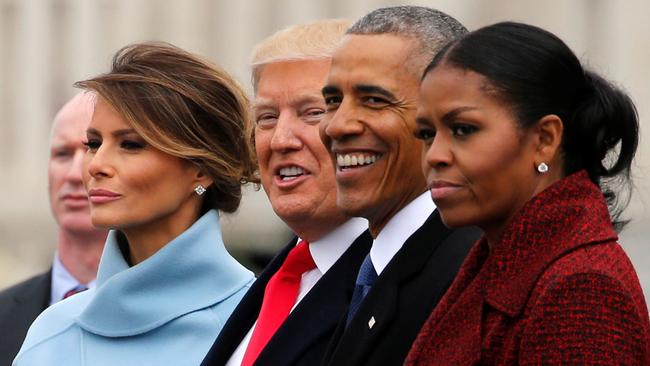
“A lot of our folks didn’t vote,’’ she says. “It was almost like a slap in the face … The people who didn’t vote at all — the young people, the women, that’s when you think, ‘man, people think this is a game’.”
In a cameo appearance, elder daughter Malia reassures her mother that “those eight years weren’t for nothing’’. This suggests the Obamas doubt whether their historic tenure at the White House — and the surrendering of their family’s privacy and freedom — was worth it. But the implications of Obama’s “trauma’’ remarks are never explored.
There is a sense that, rather than risk her film becoming a lightning rod for political controversy, vital things are left unsaid. In this way, the film version of Becoming becomes a lost opportunity. The Obama we meet in this documentary is funny, likeable and glamorous, but if you really want to know what makes this remarkable woman tick, read her book.


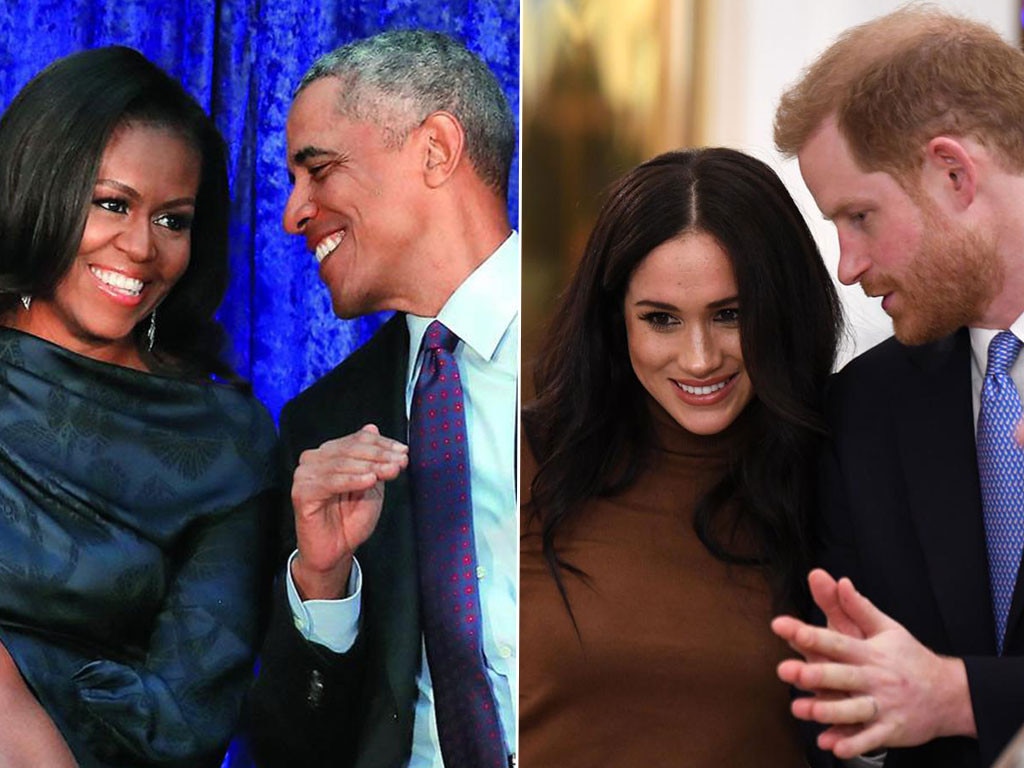

To join the conversation, please log in. Don't have an account? Register
Join the conversation, you are commenting as Logout